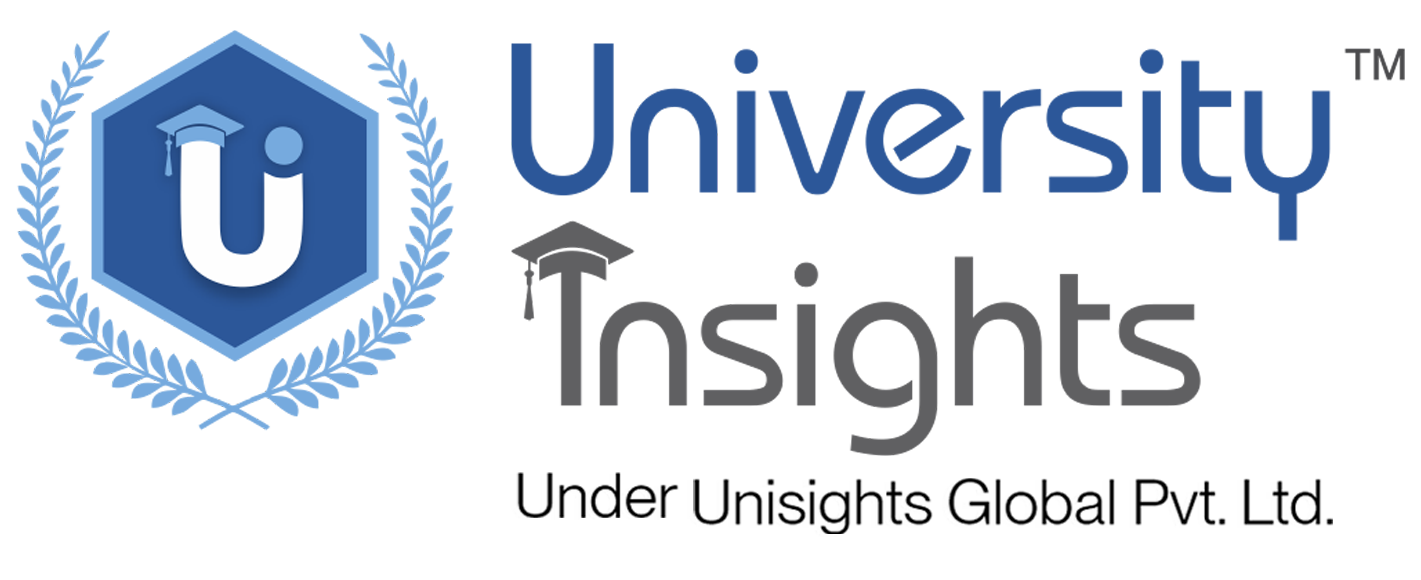Study MBBS in Norway for Indian Students – Best Medical Opportunities 2025
MBBS in Norway appeals to Indian students who want a tuition-free, research-intensive MBBS abroad degree in an English-proficient, socially advanced Nordic nation. Norwegian public universities charge only a small semester fee (~₹35 k/year), so the overall MBBS in Norway Fees—even with living costs of about ₹65 k per month in Oslo, Bergen, or Tromsø—remain lower than most Western European options. Although clinical years are taught in Norwegian, several universities now offer English-medium pre-clinical modules plus on-campus language courses. Flagship schools such as the University of Oslo Faculty of Medicine, Norwegian University of Science and Technology (NTNU), and University of Tromsø – The Arctic University of Norway provide world-class simulation labs, EU/EEA clinical rotations, and rising FMGE/NExT pass rates above 45 %. This guide explains NEET + IELTS/TOEFL entry, structured six-year MD format, visa & part-time work rules, scholarships like Quota Scheme, and how University Insights secures conditional offers in the top medical universities in Norway for the 2025-26 intake.
About Norway
Norway is a great destination for higher education, especially as students pursuing medical degrees can easily adapt due to the availability of Indian food and a supportive environment. To take MBBS admission in Norway, students need to meet eligibility criteria, including having English as a subject and passing with qualifying marks. Norwegian universities offer admission without capitation fees, and students must pay the MBBS fees to Norway medical colleges on time to secure their seats. The affordable cost of living in Norway makes it an ideal choice for international students seeking quality education and practical exposure.
| Category | Details |
|---|---|
| Capital | Oslo |
| Official Language | Norwegian (with some English-taught programs) |
| Currency | Norwegian Krone (NOK) |
| Number of Universities | 4 universities offering medical programs |
| Average Tuition Fees for MBBS | Public: Tuition-free; Private: 7,000–9,000 EUR/year; Semester fee: 30–60 EUR |
| Cost of Living in Norway | 12,000–20,000 NOK/month (1,200–2,000 EUR) |
| Minimum and Maximum Temperature | Winter: -10°C to 2°C, Summer: 15°C to 25°C |
| Exchange Rate | 1 EUR ≈ 11.6 NOK (subject to market fluctuations) |
| Climate | Temperate with cold winters and mild summers |
Cultural Insights and Geographical Overview of MBBS in Norway
Norway is known for its breathtaking natural beauty, modern cities, and high standard of living, making it an attractive destination for international students pursuing higher education. Students pursuing MBBS in Norway benefit from a multicultural environment, with Norwegian universities welcoming students from diverse backgrounds. The local language of Norway is Norwegian, but the whole MBBS course is conducted in English, which makes it quite favorable for Indian students. Norway offers a peaceful and safe environment, and the availability of Indian food makes it one of the best places for Indian students. International students studying in Norway can enjoy a vibrant lifestyle while exploring both its urban and natural attractions. With 5,000 foreign students coming to Norway every year, the country is recognized as a prime destination for medical education and higher learning.
The Educational System to Study MBBS in Norway 2025
The educational system in Norway is designed to provide high-quality education through public universities, which offer affordable or even free education for both domestic and international students. Norway MBBS programs emphasize practical exposure along with theoretical knowledge, allowing students to practice their medical skills effectively. Norwegian universities follow a student-centered approach, ensuring that students must meet high academic standards. Students pursuing MBBS in Norway are required to qualify with specific marks, including having English as a subject. The admission process is transparent, with no capitation fees to take MBBS admission. Top universities for MBBS in Norway provide globally recognized degrees that allow students to practice medicine anywhere in the world. With affordable tuition and the low cost of living in Norway, students from India find it a great place for their higher education.
Want To Study in Norway?
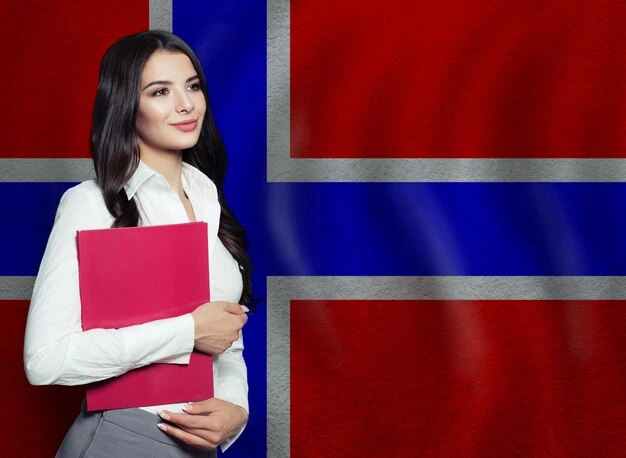
Why Study MBBS in Norway 2025-26?
Norway is known for offering excellent opportunities for students pursuing higher education, especially in the field of medicine. With top universities for MBBS providing affordable medical education, students find the cost of living in Norway and academic fees reasonable compared to other European nations. Norwegian universities emphasize research-based learning, making their medical programs among the most advanced in the world.
Affordable Medical Education in Norway
- Public universities in Norway offer free or low-cost education for students, making Norway fees very affordable compared to other countries.
- Students pursuing MBBS at Norway medical college benefit from reduced tuition and financial aid opportunities.
- No capitation fees are required to take admission to MBBS in Norway, making it financially accessible.
- Cost of living in Norway is moderate, with many students managing expenses through part-time jobs.
High-Quality Medical Programs in Norway
- Norway is known for its emphasis on practical and research-oriented medical education.
- Norwegian universities offer state-of-the-art facilities and experienced faculty members.
- Students pursuing MBBS in Norway are provided with advanced medical knowledge and clinical exposure.
- Norway MBBS programs ensure students develop both theoretical and practical skills essential for medical practice.
Global Recognition of Medical Degrees from Norway
- MBBS degrees from Norway medical college are recognized by global organizations, including WHO and ECFMG.
- Graduates of universities for MBBS in Norway can practice medicine in various countries without additional exams.
- The degrees obtained from Norway medical programs are internationally respected, providing career mobility.
- Norway offers students the chance to pursue further specialization across Europe and beyond.
MBBS Career Opportunities in Norway and Beyond
- Students pursuing MBBS in Norway can explore career opportunities within Norway and the broader European region.
- Norway allows students to practice within the healthcare sector, with pathways to post-graduation employment.
- Many students find career opportunities globally due to the global recognition of Norway MBBS degrees.
- Graduates can also return to their home countries, such as India, to continue their medical careers.
Safe and Student-Friendly Environment in Norway
- Norway is a great place for international students due to its safety and welcoming culture.
- Norwegian universities provide excellent support services for international students, including housing and counseling.
- Students must adapt to the local culture, but the environment is highly accommodating and inclusive.
- Availability of Indian food and a strong international student community make Norway the best place for Indian students pursuing medicine.
Want To Study in Norway?

Quick Highlights About MBBS in Norway
| Aspect | Details |
|---|---|
| Number of Universities | 4 Top Universities Offering Medical Programs |
| Recognition | WHO, ECFMG, MCI |
| Eligibility | 10+2 with PCB, English Proficiency, NEET Qualification (for Indian students) |
| Course Duration | 6 Years (Including Internship) |
| Total MBBS Fee in Norway | ₹40 – ₹60 Lakhs (Entire Course) |
| Tuition Fees | ₹8 – ₹12 Lakhs per year |
| Living Expenses | ₹80,000 – ₹1,00,000 per month |
| NEET | Mandatory for Indian Students |
| Intake | September/October |
| Medium of Teaching | English and Norwegian |
Want To Study in Norway?
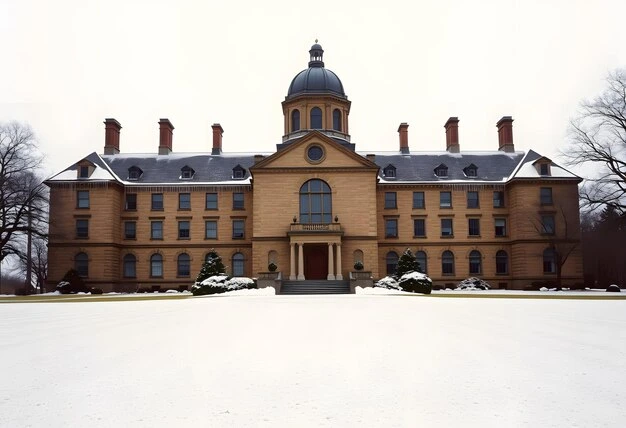
Study MBBS in Norway for Indian Students 2025-26
Norway is an emerging destination for Indian students to pursue MBBS, offering high-quality education and globally recognized degrees. With several norwegian universities and norway medical colleges, the country ensures that students receive comprehensive medical training. Norway offers English-medium programs, which makes it easier for international students.
Why Norway is the Best Choice for Indian Students to Study MBBS
- Affordable Tuition: Norway’s public universities charge minimal tuition fees, offering quality education at low costs.
- Global Recognition: An MBBS degree from Norway is recognized worldwide by organizations like WHO and ECFMG, facilitating global practice opportunities.
- Safe Environment: Norway offers a safe and student-friendly environment with high living standards.
- Top Universities for MBBS: Norway boasts some of the top universities in Norway for medical education, attracting students globally.
- Support Services: Indian students benefit from dedicated cultural adaptation and student support services.
English-Medium Instruction for Indian Students in Norway
- The whole MBBS course is conducted in English in several Norwegian universities, making it accessible for Indian students.
- Norway offers programs designed to cater to international students without needing proficiency in Norwegian.
- Many Indian students pursuing MBBS prefer Norway for the ease of English-medium instruction.
- Universities also provide language courses for those interested in learning Norwegian alongside their studies.
Low Tuition Fees for Indian Students in Norway
- Public universities charge little to no tuition, with students only needing to pay small administrative fees.
- Norway fees are very affordable, making it ideal for students from middle-income families.
- Students pursuing MBBS in Norway can also access scholarships that reduce financial burdens.
- Norway medical colleges offer flexible payment options for students.
Proximity and Cultural Familiarity
- Norway is quite favorable for Indian students, offering familiar environments and support networks.
- Indian festivals and cultural activities are celebrated, providing a sense of community.
- Many students pursuing MBBS in Norway find it easy to adapt thanks to the availability of familiar food and cultural activities.
- Norwegian universities offer orientation programs to help international students settle comfortably.
Scholarships for Indian Students Studying MBBS in Norway
- Norway provides several government and university scholarships for students pursuing MBBS.
- Scholarships include tuition waivers, monthly stipends, and travel grants for international students.
- Some Norwegian universities offer need-based and merit-based scholarships to help students manage expenses.
- Scholarships are available specifically for students from developing countries, including India.
- Students must apply early to ensure their applications are processed in time.
Career Opportunities after MBBS in Norway for Indian Students
- Norway allows students to practice within the country after graduation by applying for residency programs.
- Graduates can pursue higher studies in medicine or specializations within Norway or other European countries.
- MBBS in Norway can easily open doors to career opportunities across Europe and globally.
- Graduates returning to India benefit from having a globally recognized MBBS degree from Norway.
- Top universities for MBBS in Norway also offer job placement support and alumni networks to help students secure employment.
Want To Study in Norway?

Studying MBBS Admission Process in Norway 2025-26
Eligibility Criteria for MBBS in Norway 2025-26
NEET Qualification: Indian students must qualify for the NEET exam with a minimum score of 50th percentile (720-138 marks) for general category and 40th percentile (137-108 marks) for reserved categories (SC/ST/OBC) to meet eligibility standards for MBBS admissions in Norway. This ensures the degree will be recognized for practice in India.
Academic Requirements: Students should have completed 12th grade with Physics, Chemistry, and Biology, securing a minimum of 50% aggregate marks. English proficiency is also required, demonstrated through exams like IELTS or TOEFL for programs conducted in English.
Required Documents for Studying MBBS in Norway 2025-26
- Academic transcripts (10th and 12th mark sheets).
- NEET scorecard (for Indian students).
- Proof of English language proficiency (IELTS/TOEFL if required).
- Copy of passport and student visa application.
- Health insurance proof and vaccination certificates.
- Financial statements proving students can pay the fees to Norway.
Application Process and Deadlines to Study MBBS in Norway 2025
- Students need to fill the online application form on the university portal.
- Submit the required documents before the specified deadline (usually January–March).
- Students then will receive an offer letter if selected.
- Need to pay the MBBS fees in Norway and confirm the seat within the given timeframe.
- Norway offers an autumn intake starting in August/September each year.
Visa Requirements and Process for Studying MBBS in Norway
- International students studying in Norway require a student visa.
- Documents required: Offer letter, passport, health insurance, financial proof, and fee payment receipt.
- Students apply for a visa at the Norwegian embassy in their home country.
- Students must provide biometric data and attend a visa interview.
- Norway is known for smooth visa processing, with most visas processed within 30-45 days.
Intake for MBBS in Norway
| Intake | Details |
|---|---|
| Autumn Intake | August/September (Primary Intake) |
| Spring Intake | January (Limited Programs Available) |
| Application Period | January to March |
| Foreign students taking admission | 5,000 students annually |
Want To Study in Norway?
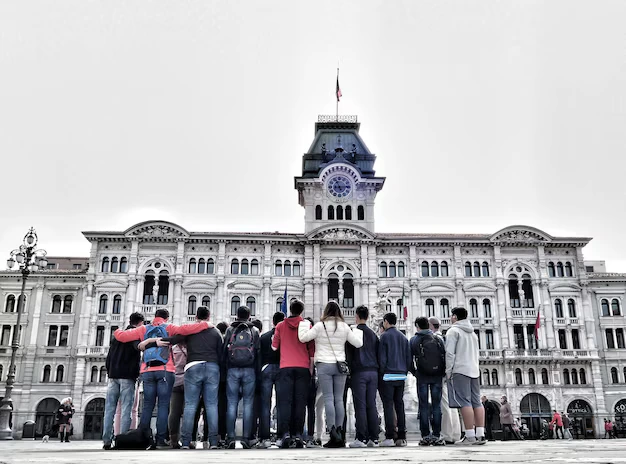
Fee Structure and Costs to Study MBBS in Norway 2025-26
MBBS in Norway Fees Structure for Indian Students
| Year | Tuition Fees (EUR) | Approx. Amount in INR |
|---|---|---|
| Year 1 | 7,000 – 9,000 | 6,00,000 – 8,00,000 |
| Year 2 | 7,000 – 9,000 | 6,00,000 – 8,00,000 |
| Year 3 | 7,000 – 9,000 | 6,00,000 – 8,00,000 |
| Year 4 | 7,000 – 9,000 | 6,00,000 – 8,00,000 |
| Year 5 | 7,000 – 9,000 | 6,00,000 – 8,00,000 |
| Year 6 | 7,000 – 9,000 | 6,00,000 – 8,00,000 |
Other Fees and Financial Costs Associated with Studying MBBS in Norway
| Expense Type | Approx. Annual Cost (EUR) | Approx. Amount in INR |
|---|---|---|
| Accommodation | 6,000 – 9,000 | 5,00,000 – 7,50,000 |
| Food and Groceries | 3,600 – 6,000 | 3,00,000 – 5,00,000 |
| Health Insurance | 600 – 800 | 50,000 – 70,000 |
| Study Materials | 100 – 200 | 8,000 – 16,000 |
| Transportation | 600 – 800 | 50,000 – 70,000 |
| Personal Expenses | 1,200 – 2,000 | 1,00,000 – 1,60,000 |
Detailed Breakdown of Costs for MBBS in Norway
| Expense | Yearly Cost (EUR) | Approx. Amount in INR |
|---|---|---|
| Tuition Fees | 7,000 – 9,000 | 6,00,000 – 8,00,000 |
| Accommodation | 6,000 – 9,000 | 5,00,000 – 7,50,000 |
| Health Insurance | 600 – 800 | 50,000 – 70,000 |
| Visa Fees | 600 | 50,000 |
| Miscellaneous Costs | 1,500 – 2,000 | 1,20,000 – 1,60,000 |
| Total Annual Cost | 15,700 – 20,400 | 13,00,000 – 17,00,000 |
Hidden Costs of Studying MBBS in Norway
| Hidden Costs | Approx. Annual Cost (EUR) | Approx. Amount in INR |
|---|---|---|
| Clinical Placement Fees | 1,000 – 2,000 | 80,000 – 1,60,000 |
| Graduation Fees | 200 – 500 | 16,000 – 40,000 |
| Licensing Exam Fees | 1,500 – 2,500 | 1,20,000 – 2,00,000 |
| Travel Expenses | 1,000 – 2,000 | 80,000 – 1,60,000 |
Financial Planning for MBBS in Norway
| Financial Aspect | Details |
|---|---|
| Scholarships | Students can apply for Erasmus+ and university-specific scholarships. |
| Part-Time Work | Students can work up to 20 hours per week during semesters and full-time during holidays. |
| Loan Options | Education loans are available from Indian banks, including SBI and Axis Bank. |
| Budgeting Tips | Plan monthly expenses, use public transport discounts, and opt for shared accommodation to save costs. |
Want To Study in Norway?

Top Ranked Medical Colleges in Norway to Study MBBS 2025-26
Best Medical College in Norway to Study MBBS
| University | Location | World Ranking (QS) | Tuition Fees (Per Year) |
|---|---|---|---|
| University of Oslo | Oslo | 101 | Free (Semester fee: 30-60 EUR) |
| University of Bergen | Bergen | 207 | Free (Semester fee: 30-60 EUR) |
| Norwegian University of Science and Technology (NTNU) | Trondheim | 352 | Free (Semester fee: 30-60 EUR) |
| Arctic University of Norway (UiT) | Tromsø | 454 | Free (Semester fee: 30-60 EUR) |
| Norwegian School of Sport Sciences | Oslo | Not Ranked | Free (Semester fee: 30-60 EUR) |
| Oslo and Akershus University College | Oslo | Not Ranked | Free (Semester fee: 30-60 EUR) |
| VID Specialized University | Multiple Cities | Not Ranked | Free (Semester fee: 30-60 EUR) |
| Nord University | Bodø | Not Ranked | Free (Semester fee: 30-60 EUR) |
| NLA University College | Bergen | Not Ranked | Free (Semester fee: 30-60 EUR) |
| BI Norwegian Business School (Healthcare Programs) | Oslo | 561-570 | 7,000 – 9,000 EUR (Private) |
Want To Study in Norway?
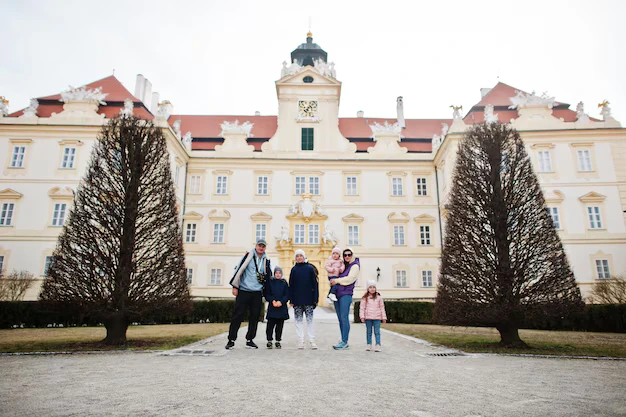
Advantages of Studying MBBS in Norway 2025-26
Norway offers a blend of high-quality education, global recognition, and excellent post-graduation opportunities, making it a desirable destination for pursuing MBBS.
Cost of Studying MBBS in Norway vs Other Countries
- Free Public Education: Public universities in Norway do not charge tuition fees for both domestic and international students. Only a small semester fee between 30-60 EUR is required.
- Private University Fees: Private universities charge between 7,000 to 9,000 EUR per year for undergraduate programs.
- Affordable Living Costs:
- Oslo: 1,200–2,000 EUR/month
- Bergen: 1,100–1,800 EUR/month
- Tromsø: 1,000–1,600 EUR/month
- Additional Expenses: Monthly costs for food, transportation, health insurance, and other essentials can range from 1,000 to 1,500 EUR.
- Accommodation Options: Student housing costs 300–700 EUR per month, significantly reducing overall expenses.
- Scholarships Available: International students can benefit from Norway’s state-sponsored and university-specific scholarships, including Erasmus+ and Quota Scheme.
High Standard of Medical Education
- Program Duration: The MBBS program takes six years, focusing on integrating theoretical studies with clinical practice.
- Research and Innovation: Norwegian universities emphasize innovation and research, providing access to advanced medical technologies and labs.
- Practical Internships: Students engage in hands-on training at affiliated hospitals, gaining real-world experience throughout the course.
- Accredited Universities: Top universities such as the University of Oslo, University of Bergen, NTNU, and Arctic University ensure high educational standards.
- Focus on Global Health: The curriculum incorporates global health trends, making students well-prepared for careers anywhere in the world.
Global Recognition of Medical Degrees in Norway
- International Practice: Norwegian MBBS degrees are accepted globally, including in Europe, India, and the Middle East.
- European Mobility: The degree allows students to work or continue higher education across Europe without additional qualifications.
- Recognition in India: MBBS graduates from Norway can easily apply for licenses and practice in India after fulfilling the local medical council’s requirements.
English-Medium Instruction for MBBS in Norway
- Courses in English: Some programs are offered in English, allowing international students to pursue their degrees comfortably.
- Bilingual Environment: While Norwegian is commonly used, English proficiency is widespread, facilitating communication.
- English Language Support: Universities offer English language support and preparatory courses for international students.
Cultural Adaptation for International Students in Norway
- Welcoming Environment: Norway promotes inclusiveness, making it easier for international students to adapt to the culture.
- Availability of Indian Food: Grocery stores and restaurants offer Indian food options, easing cultural transition for Indian students.
- Student Support Services: Universities provide counseling, language courses, and mentorship programs to help students integrate.
- Diverse Student Community: More than 5,000 international students join Norwegian universities every year, fostering a multicultural environment.
Post-Graduation Opportunities After MBBS in Norway
- Residency Training: Graduates can pursue specialized medical training through structured residency programs in Norway.
- Job Opportunities: Norway offers numerous job openings in public hospitals, private clinics, and research institutions.
- Attractive Salaries: Doctors in Norway earn competitive salaries, with a strong focus on work-life balance.
- Opportunities for Higher Studies: Graduates can continue with master’s or PhD programs to specialize further or pursue research.
- Global Career Pathways: Norwegian degrees open doors to medical careers worldwide, especially in Europe and India.
- Post-Study Work Visa: Norway allows international students to stay and work after graduation, providing a smooth transition into the workforce.
Want To Study in Norway?
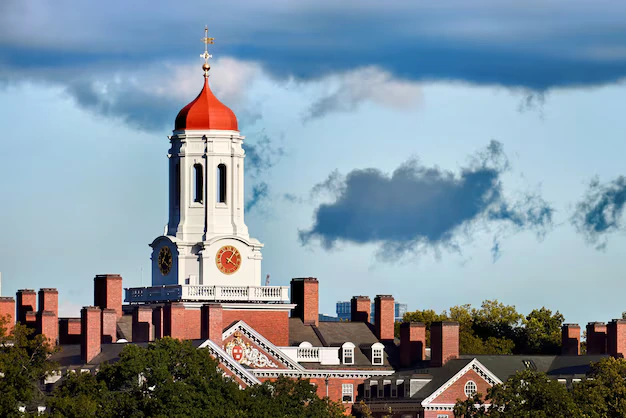
Course Details and Curriculum of Studying MBBS in Norway 2025-26
MBBS Curriculum and Structure in Norway
| Phase | Description |
|---|---|
| Pre-Clinical Phase | Focus on foundational subjects such as Anatomy, Biochemistry, and Physiology (first two years). |
| Clinical Phase | Covers subjects like Internal Medicine, Surgery, and Pediatrics with practical exposure in hospitals (years 3-6). |
| Final Year | Intensive clinical rotations and electives with preparation for licensing exams. |
| Research Opportunities | Students engage in research projects during the course to enhance practical knowledge. |
| Assessment Methods | Includes written exams, practical assessments, and case-based evaluations at each stage. |
Duration of MBBS Program in Norway
- Six-Year Program: Comprises three years of pre-clinical studies and three years of clinical training.
- Internship Requirements: A compulsory one-year internship in affiliated hospitals.
- Flexible Course Options: Some universities offer the option to extend electives over the summer.
- Licensing Preparation: Final year focuses on preparing for medical licensing exams and clinical competency assessments.
Academic Support Services in Norway
- Tutoring Programs: Peer tutoring is available to help students in challenging subjects.
- Library Access: Students have access to digital libraries and research databases.
- Career Counseling: Universities provide career guidance for specialization and job placement.
- Language Assistance: Dedicated language support to help international students master Norwegian.
- Student Health Services: On-campus health services for both physical and mental well-being.
Research and Laboratory Facilities for MBBS Students
- Collaborative Research Opportunities: Students work on projects with hospital partners.
- Funding for Research Projects: Scholarships and grants are available for research initiatives.
- Advanced Medical Equipment: Access to the latest diagnostic tools and lab technologies.
- Innovation Labs: Universities promote innovation through research-based projects in healthcare technology.
- Participation in Conferences: Students are encouraged to present their research at medical conferences.
Online Learning Resources and Platforms for MBBS Students
- Discussion Forums: Online platforms offer interactive forums for peer discussion and faculty interaction.
- E-Library Resources: Students access textbooks, journals, and research papers online.
- Mobile Learning Apps: Universities provide apps for accessing course content on the go.
- Live Virtual Classes: Some courses are conducted through live-streamed sessions, offering remote access.
- Digital Assessments: Exams and quizzes are often conducted online to enhance learning flexibility.
Use of Technology in Medical Education in Norway
- Telemedicine Training: Students receive hands-on training in telemedicine, preparing them for remote healthcare.
- AI Tools: Artificial intelligence is integrated into courses for diagnostics and personalized learning.
- Electronic Health Record (EHR) Systems: Training includes using EHRs for patient data management.
- Virtual Reality (VR) Simulations: VR technology is used for surgical training and anatomy studies.
- Medical Robotics: Universities offer exposure to medical robotics, reflecting advancements in healthcare.
Want To Study in Norway?
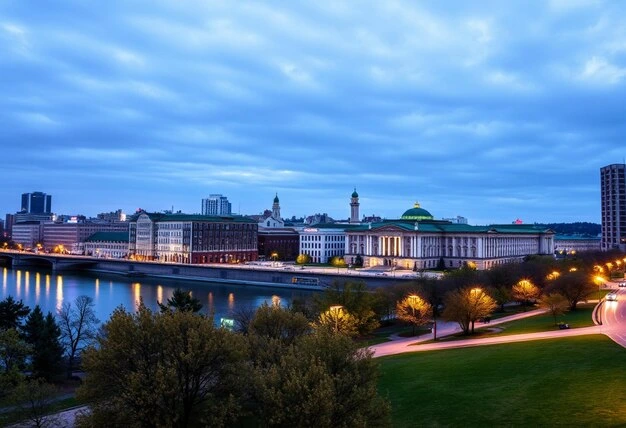
Studying MBBS in Norway Syllabus
Key Subjects and Curriculum for MBBS in Norway
Year 1-2 (Pre-Clinical Phase)
- Anatomy, Physiology, and Biochemistry
- Public Health and Community Medicine
- Introduction to Medical Ethics
- Basics of Microbiology and Pharmacology
Year 3-4 (Para-Clinical Phase)
- Pathology and Pharmacology
- Clinical Skills and Diagnostics
- Internal Medicine, Surgery, and Pediatrics (Introductory)
- Behavioral Sciences and Patient Communication
Year 5-6 (Clinical Phase)
- Advanced Internal Medicine, Surgery, and Psychiatry
- Obstetrics and Gynecology, Pediatrics, and Neurology
- Clinical Rotations across Specialties
- Capstone Research Project and Thesis Submission
MBBS Syllabus in Norway 2025
| Year | Subjects Covered |
|---|---|
| Year 1 | Anatomy, Physiology, Biochemistry |
| Year 2 | Microbiology, Pharmacology, Community Medicine |
| Year 3 | Pathology, Internal Medicine, Surgery (Introductory) |
| Year 4 | Pediatrics, Psychiatry, Clinical Diagnostics |
| Year 5 | Advanced Surgery, Obstetrics & Gynecology, Neurology |
| Year 6 | Electives, Capstone Project, Research Thesis |
MBBS Internship Structure and Details in Norway
| Department | Duration |
|---|---|
| Internal Medicine | 1.5 months |
| Surgery | 1.5 months |
| Pediatrics | 1 month |
| Obstetrics & Gynecology | 1 month |
| Community Medicine (Rural Posting) | 3 months |
| Emergency Medicine | 1 month |
| Elective Rotation | 2 months |
Licensing Exams after MBBS in Norway
- Norwegian Medical Licensing Exam: Mandatory for graduates to gain authorization to practice.
- Language Proficiency: Norwegian proficiency is required to pass the licensing exam.
- Clinical Competency Test: Practical skill evaluation included in the final exam.
- Specialist Internship Pathway: For students aiming for advanced specialization, an 18-month residency program is required.
Ethical Practices in Medical Education in Norway
- Medical Ethics Courses: Integrated into the curriculum from the first year.
- Patient Privacy and Confidentiality: Emphasized throughout clinical training.
- Case-Based Discussions: Focus on resolving real-world ethical dilemmas.
- Interdisciplinary Learning: Collaboration across various medical fields to address ethical concerns.
- Community Engagement: Projects focused on public health ethics and outreach programs.
Environmental Sustainability in Medical Universities in Norway
- Sustainable Infrastructure: Green buildings and eco-friendly hospital campuses.
- Curriculum Integration: Courses on environmental health and sustainability in healthcare.
- Research on Climate and Health: Focus on the impact of climate change on health.
- Energy-Efficient Facilities: Medical schools use renewable energy and sustainable resources.
- Sustainability Projects: Students participate in research focused on sustainable healthcare practices.
Want To Study in Norway?
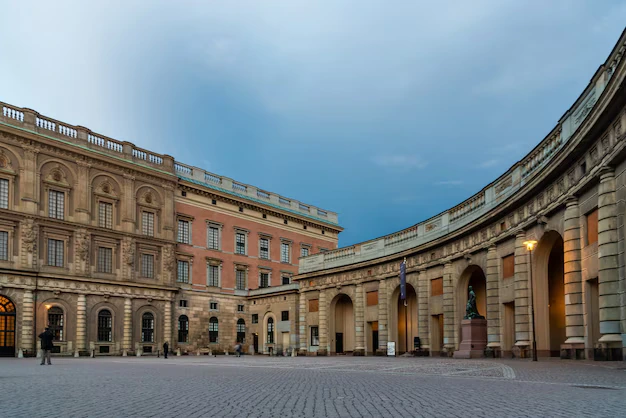
Opportunities and Career Prospects After Studying MBBS in Norway 2025-26
Career and Job Prospects After MBBS in Norway
- Employment in Public and Private Healthcare: Graduates can work in Norway’s well-regarded public healthcare system or join private medical practices.
- High Salary and Benefits: Fresh graduates earn between NOK 178,000 to NOK 213,000 per month. Work-life balance is ensured through Norway’s strict labor laws.
- International Recognition of MBBS Degrees: A medical degree from Norway is accepted across Europe and other regions, enabling graduates to pursue careers abroad.
- Residency Training Programs: Graduates can apply for specialized residency programs, gaining hands-on experience in fields such as cardiology, neurology, and surgery.
- Job Mobility Across Europe: MBBS graduates are eligible to practice throughout the European Union (EU) without additional licensing requirements.
Higher Studies After MBBS in Norway
- Master’s and PhD Programs: Graduates can continue their academic journey with research-based master’s or doctoral programs offered by Norwegian universities.
- Residency Specialization: Specializations in high-demand areas, such as internal medicine or anesthesiology, are available through structured residency programs.
- Global Research Opportunities: Norway’s emphasis on medical research provides ample opportunities for graduates to engage in cutting-edge medical research.
Licensing and Practice in Norway After MBBS
- Authorization by SAK: Graduates need to obtain a license from the Norwegian Registration Authority for Health Personnel (SAKH) to practice in Norway.
- Language Proficiency Requirement: Fluency in Norwegian, Swedish, or Danish is necessary to ensure smooth patient communication.
- Recognition of EU Degrees: Graduates holding degrees from EU/EEA countries are eligible for faster licensing procedures compared to non-EU graduates.
- Residency Requirements for Non-EU Graduates: Medical graduates from outside the EU may need to complete additional training or internships before full licensure.
Part-Time Work Opportunities for MBBS Students in Norway
- 20-Hour Work Limit: MBBS students are allowed to work part-time for 20 hours per week during the academic year and full-time during vacations.
- On-Campus Jobs: Universities provide part-time job opportunities, including research assistant positions, administrative roles, and student ambassadors.
- Internships and Hospital Work: Students can engage in part-time work in hospitals or clinics to gain practical experience alongside studies.
Post-MBBS Job Placement Services
- University Career Centers: Universities offer placement support through career counseling, job fairs, and internship programs.
- Hospital Partnerships for Residency: Many universities in Norway have affiliations with hospitals, making it easier for graduates to secure residency positions.
- Networking Events: Career centers organize networking events, helping students connect with potential employers and mentors.
Alumni Network for MBBS Graduates from Norway
- Active Alumni Networks: Norwegian universities have robust alumni networks that offer career guidance and mentoring opportunities to fresh graduates.
- Global Alumni Connections: Graduates are connected with peers across the world, fostering a global community of medical professionals.
- Collaborative Opportunities: Alumni networks also create opportunities for professional collaborations and research partnerships.
Alumni Success Stories
- Highly Placed Alumni: Graduates from Norwegian universities have successfully established careers in specialized fields and public healthcare sectors.
- Success in Global Careers: Norwegian MBBS graduates have pursued careers across Europe, the Middle East, and North America, benefitting from international recognition.
Common Challenges Faced by International MBBS Students and How to Overcome Them
- Language Barriers: Students are encouraged to enroll in Norwegian language courses early to ease communication challenges.
- Adapting to Cultural Differences: Support services, including cultural orientation programs and student clubs, help international students adjust to life in Norway.
- Managing Living Costs: While the cost of living is high, students can manage expenses through scholarships, part-time jobs, and affordable student housing.
- Navigating Licensing Procedures: Non-EU students may need additional documentation and training to secure licenses, but universities provide guidance throughout the process.
Want To Study in Norway?

Studying MBBS in Norway vs MBBS in India 2025-26
Comparison of Studying MBBS in Norway vs MBBS in India (2025-26)
| Aspect | MBBS in Norway | MBBS in India |
|---|---|---|
| Post-Graduation Opportunities | Structured residency programs, PhD, and master’s options with global recognition. | Requires NEET-PG; highly competitive postgraduate seats. |
| Recognition of MBBS Degree | MBBS degree from Norway is recognized across Europe and India. | Indian MBBS degrees recognized locally and abroad with additional exams. |
| Fees and Tuition | Public universities are tuition-free; private universities charge 7,000–9,000 EUR/year. | Government colleges: INR 1–2 lakh/year; private: 20–25 lakh INR/year. |
| Cost of Living | High, ranging from 1,200 to 2,000 EUR/month. | Lower, approximately 15,000 to 30,000 INR/month. |
| Medium of Instruction | Norwegian, but some programs are in English. | Mostly in English. |
| Admission Process | No entrance exams; NEET may be needed for Indian students. | NEET is mandatory for admission. |
| Cultural Adaptation | Multicultural environment with Indian food availability. | No adaptation needed, but less international exposure. |
| Job Prospects After Graduation | Graduates can practice across Europe or in India. | Jobs available locally; requires foreign exams for overseas practice. |
| Capitation Fees | No capitation fees required. | High capitation fees in private colleges. |
| Best Place for Indian Students | Safe and inclusive with international exposure. | Familiar environment with affordable education. |
Want To Study in Norway?

Studying MBBS in Norway vs MBBS in Other Countries 2025-26
Why Study MBBS in Norway Instead of Other Countries?
- Tuition-Free Public Universities: Norway offers free education at public universities, while many other countries charge high tuition fees for MBBS programs.
- Global Recognition: An MBBS degree from Norway is recognized across Europe, India, and other regions, facilitating international practice.
- High-Quality Education: Norwegian universities focus on research, clinical training, and practical experience, ensuring students receive comprehensive education.
- Safe and Inclusive Environment: Norway is known for being one of the safest countries, with a welcoming attitude towards international students.
- Opportunities for International Students: Around 5,000 foreign students join Norwegian universities every year, benefiting from diverse cultural exposure and global opportunities.
- Affordable Living with Support Options: Although cost of living in Norway is high, students can manage expenses with scholarships and part-time work.
- Multicultural Adaptation: Availability of Indian food and language support ensures that students from India can easily adjust to life in Norway.
Comparison Between MBBS in Norway and Other MBBS Abroad Destinations
| Aspect | Norway | Russia | China | USA | Germany | UK |
|---|---|---|---|---|---|---|
| Tuition Fees | Free tuition at public universities; nominal semester fee. | 4-8 lakh INR/year | 3-6 lakh INR/year | 50-60 lakh INR total | Public universities: Free; Private: 10-15 lakh INR/year | 30-45 lakh INR total |
| Living Costs | 1,200–2,000 EUR/month, offset by part-time work | 50,000 INR/month | 40,000 INR/month | 2-3 lakh INR/month | 1,000–1,500 EUR/month | 1,500–2,000 GBP/month |
| Language of Instruction | Mainly Norwegian, some programs in English | Russian; some English-taught programs | Chinese; some in English | Primarily English | German; some programs in English | English |
| Recognition | Globally recognized, especially across Europe | Recognized, but FMGE/NExT required for India | FMGE/NExT required in India | USMLE required globally | Recognized across Europe | Recognized worldwide |
| Post-Graduation Opportunities | Access to residency programs in Europe | Residency limited to Russia | Limited global recognition | Extensive residency options in the USA | Broad EU access to residencies | High demand for specialists, broad opportunities |
| Job Prospects | Graduates can practice across Europe and India | Placement in Russia is easier than abroad | Difficult international placement | High global employability | EU-wide employment | High demand for graduates |
| Cultural Adaptation | Indian food availability and student support | Cultural adaptation required | Cultural challenges; different lifestyle | Familiar to many Indian students | Similar to European standards | Multicultural, with Indian communities |
| Admission Process | No entrance exam; NEET may be required | Entrance exams for international students | Requires entrance exam and HSK for Chinese proficiency | MCAT and interviews required | Requires good grades and proficiency tests |
Want To Study in Norway?

Scholarships and Financial Aids to Study MBBS in Norway 2025-26
Scholarships for MBBS in Norway
- Quota Scheme Scholarships: This program, funded by the Norwegian government, offers financial support to students from specific countries in Africa, Asia, Latin America, and Eastern Europe. These scholarships often cover living expenses, travel allowances, and sometimes tuition fees for international students.
- Erasmus+ Program: This European Union initiative provides scholarships for students from EU/EEA countries, supporting both exchange and degree programs in Norway.
- University-Specific Scholarships: Some Norwegian universities offer scholarships exclusively for exceptional international students. These awards can provide financial assistance for living expenses or cover part of the tuition and semester fees.
- NORPART Program: The Norwegian Partnership Programme for Global Academic Cooperation offers mobility and exchange scholarships, encouraging cooperation between universities in Norway and developing countries.
Financial Aids to Study MBBS in Norway
- Part-Time Work Opportunities: International students can work up to 20 hours per week during the academic year and full-time during holidays, helping them manage living expenses.
- Student Loans and Grants: Although most loans are available for Norwegian citizens, a few universities partner with international organizations to offer grants to foreign students.
- Government Support Programs: Some students from underdeveloped countries may qualify for additional subsidies under government initiatives or partner country programs.
How to Apply for Scholarships and Financial Aids
- Research and Eligibility: Students must identify the scholarships they are eligible for, based on nationality, academic achievements, and program requirements.
- Prepare Application Documents: Common requirements include academic transcripts, proof of language proficiency, letters of recommendation, and a personal motivation letter.
- Application Submission: Apply through the specific scholarship portals or university websites before the deadlines, which usually range between December and March for the next academic year.
- Follow-Up and Decision: Once the application is submitted, students will be notified about the outcome. Successful applicants receive formal scholarship offers with terms and conditions.
Want To Study in Norway?

MBBS Options for Indian Students Other Than Norway 2025
Popular Countries for MBBS Other Than Norway
- Russia: Offers affordable education with well-equipped universities. MBBS programs are recognized by the WHO and NMC (National Medical Commission).
- China: Known for low tuition and modern facilities. Many universities offer English-taught MBBS programs.
- Germany: Tuition-free education at public universities with some medical courses available in English. Requires German language proficiency.
- Philippines: English-speaking country with a curriculum similar to the USA, making it easier for Indian students to adjust.
Feasible MBBS Study Options for Indian Students
- Russia: MBBS fees range from 4 to 8 lakh INR/year, making it affordable.
- China: Many universities offer low fees, between 3 to 6 lakh INR/year, with good infrastructure.
- Germany: Although public universities do not charge tuition fees, living expenses are higher, around 1,000-1,500 EUR/month.
- Philippines: MBBS in the Philippines is affordable, with fees ranging from 20 to 25 lakh INR for the entire course.
- Bangladesh: Offers MBBS programs similar to India at reasonable fees, making it a viable option for Indian students.
Pros and Cons of MBBS Destinations
| Country | Pros | Cons |
|---|---|---|
| Russia | Affordable fees, recognized degrees, high international student intake. | Harsh winters, cultural adaptation required. |
| China | Low fees, English-taught courses, modern infrastructure. | Language barrier outside the university environment. |
| Germany | Tuition-free education, excellent healthcare system. | Requires German proficiency for most programs. |
| Philippines | English-speaking, US-based curriculum. | Tropical climate may be uncomfortable for some students. |
| Bangladesh | Similar curriculum and culture to India. | Limited international exposure. |
Want To Study in Norway?

Living Cost While You Study MBBS in Norway 2025-26
Lifestyle, Culture, and Student Life in Norway
- High Standard of Living: Norway offers an excellent quality of life, with access to modern amenities, public services, and healthcare.
- Diverse Student Community: Around 5,000 foreign students study in Norwegian universities every year, fostering a multicultural environment.
- Outdoor Activities: Norway is known for scenic landscapes, offering students opportunities for hiking, skiing, and other outdoor activities.
- Cultural Events: Students can participate in festivals, music events, and exhibitions throughout the year, enriching their experience in Norway.
- Work-Life Balance: Norway promotes a balanced lifestyle, ensuring that students have enough time for both studies and personal growth.
Safety and Accommodation for International Students in Norway
- Safe Environment: Norway is considered one of the safest countries globally, with low crime rates and a high quality of public services.
- Student Housing Options: Universities offer student housing, with monthly rents ranging between 500 and 800 EUR, depending on the city.
- Private Accommodation: Renting private apartments costs between 800 and 1,200 EUR/month in cities like Oslo.
- Health Insurance: Students must have health insurance throughout their stay, with costs ranging between 500-800 NOK/month.
- On-Campus Security: Universities ensure safe environments with 24/7 on-campus security and assistance services for international students.
Table: Comparative Living Costs for Medical Students in Various Countries
| Country | Monthly Living Cost (in Local Currency) | Monthly Cost (in EUR) |
|---|---|---|
| Norway | 12,000–20,000 NOK | 1,200–2,000 EUR |
| Russia | 45,000–60,000 RUB | 500–700 EUR |
| China | 3,500–5,000 CNY | 400–600 EUR |
| Germany | 800–1,500 EUR | 800–1,500 EUR |
| Philippines | 20,000–30,000 PHP | 350–500 EUR |
Language and Communication Support for International Students in Norway
- Norwegian Language Courses: Many universities offer free or subsidized Norwegian language classes for international students.
- English-Medium Programs: Some universities provide MBBS programs in English, easing the transition for international students.
- Bilingual Environment: English is widely spoken in Norway, facilitating communication outside the classroom.
- Language Exchange Programs: Universities organize exchange programs to help students practice Norwegian with native speakers.
- Translation Services: Many universities offer translation services for academic documents and official communications.
Student Support Services for International Students in Norway
- Orientation Programs: Universities provide orientation programs to help new students settle in and familiarize themselves with the campus.
- Counseling and Mental Health Support: Universities offer mental health services, including counseling and stress management programs.
- Career Services: Career centers assist students with internships, part-time jobs, and post-graduation placements.
- Financial Aid Support: Dedicated departments help international students apply for scholarships and financial aid.
- Health Services: Universities provide access to medical services, including general practitioners and emergency healthcare.
Extracurricular Activities and Student Clubs in Norway
- Student Clubs and Societies: Students can join clubs focused on sports, music, arts, and community services.
- Sports Facilities: Universities offer access to gyms, swimming pools, and sports complexes for student use.
- Volunteering Opportunities: Students are encouraged to engage in community service and social projects.
- Cultural Events and Trips: Student unions organize cultural trips, movie nights, and excursions to explore Norway.
- Competitions and Challenges: Students can participate in academic and non-academic competitions, fostering creativity and teamwork.
Cultural Adaptation and Support Services
- Cultural Orientation Sessions: Universities conduct sessions to help students adjust to Norwegian customs and traditions.
- Multicultural Student Communities: International students can connect with others through cultural exchange events and forums.
- Indian Food Availability: Indian restaurants and grocery stores are present in major cities like Oslo and Bergen, making the transition easier for Indian students.
- Buddy Programs: Many universities offer buddy systems, pairing international students with locals to ease cultural adaptation.
- Workshops on Norwegian Etiquette: Workshops help students understand workplace and social etiquette in Norway.
Want To Study in Norway?

Health and Safety While Studying MBBS in Norway
Healthcare Facilities for International Students in Norway
- Access to Public Healthcare: Students can access Norway’s high-quality public healthcare system through the Norwegian National Insurance Scheme (NIS).
- University Health Services: Many Norwegian universities offer on-campus health centers providing general medical consultations.
- Emergency Services: Emergency medical services are available 24/7, ensuring prompt care for urgent health issues.
- Specialist Referrals: Students who need specialized care can receive referrals to hospitals or specialists.
- Dental Care: Basic dental care may not be covered under public health, but students can access affordable dental services through university networks.
Health Insurance Requirements for International Students
- Compulsory Health Insurance: Students must obtain health insurance, either through the NIS or private insurance providers.
- National Insurance Scheme Enrollment: Non-EU/EEA students staying more than one year are required to register for NIS, which covers healthcare costs.
- Private Insurance Options: Students staying for less than a year need private insurance, which must cover basic medical needs and emergencies.
- European Health Insurance Card (EHIC): Students from the EU/EEA can use their EHIC to access healthcare in Norway.
- Costs: Health insurance generally costs 500–800 NOK/month, depending on the provider.
Vaccination and Medical Check-up Requirements
- Vaccination Requirements: Norway recommends certain vaccinations, such as for MMR (Measles, Mumps, Rubella) and Hepatitis B, for students entering medical programs.
- Pre-Arrival Medical Check-ups: Students must undergo a medical check-up before traveling, especially for those coming from countries with infectious diseases.
- TB Screening: Students from high-risk regions may need a tuberculosis test before admission.
- University Medical Forms: Some norway medical college programs require submission of medical reports and vaccination records during enrollment.
- Seasonal Vaccinations: Flu vaccines are recommended to stay protected during the winter months.
Safety Tips and Resources for International Students
- Emergency Helpline: Norway’s emergency number 113 connects to ambulance services for medical emergencies.
- Local Police Support: Students can access non-emergency police services by calling 02800 for assistance.
- Safety Apps: Some universities recommend safety apps that provide quick access to campus security.
- Weather Preparedness: Students must be prepared for harsh winters by wearing appropriate clothing and footwear.
- Road Safety: Norway promotes strict traffic rules; students should follow regulations, especially during winter when roads are icy.
Mental Health and Counseling Services
- Counseling Services: Universities offer free mental health counseling for students dealing with stress or personal issues.
- Student Support Programs: Dedicated student welfare offices provide psychological support and advice.
- 24/7 Helplines: Some universities provide access to mental health helplines for emergencies.
- Work-Life Balance Programs: Institutions encourage students to maintain a balanced lifestyle to manage stress effectively.
- Peer Support Groups: Student-led mental health initiatives offer peer support networks and group therapy sessions.
Pre-Departure Checklist for Studying MBBS in Norway
- Health Insurance: Ensure that health insurance is active before travel.
- Medical Check-Up: Complete the required medical tests and vaccinations.
- Document Preparation: Carry necessary documents like admission letters, health certificates, and insurance papers.
- Clothing and Essentials: Pack warm clothing to cope with the Norwegian winter.
- Emergency Contacts: Save important numbers, including the university helpline and local emergency services.
Orientation Programs for International Students
- Welcome Week Activities: Many universities conduct orientation programs introducing students to campus life and resources.
- Cultural Integration Workshops: Workshops on Norwegian culture and customs help international students adapt smoothly.
- Academic Support Sessions: Sessions on academic practices in higher education in Norway ensure students adjust to the system.
- Student Mentorship Programs: New students are paired with mentors or senior students for guidance.
- Tour of Campus and City: Universities organize tours to familiarize students with the university offers and surrounding areas.
Want To Study in Norway?

Financial Planning to Study MBBS in Norway
Scholarships and Financial Aid
- Government Scholarships: Norway offers financial support through the Quota Scheme and Erasmus+ Program, available to students who applied to study MBBS and meet eligibility criteria.
- University Scholarships: Several norwegian universities provide merit-based scholarships to reduce mbbs in norway fees and cover living costs.
- NORPART Program: This initiative supports international exchange and cooperation, offering partial funding to students who want to study mbbs in Norway.
- Additional Grants: Some students can apply for specialized grants for research projects or internships.
- Full/Partial Financial Aid: Financial aid packages often combine tuition coverage with living expense allowances, helping students pay the mbbs in norway efficiently.
Part-Time Work Opportunities for MBBS Students
- 20-Hour Work Limit: MBBS students can work part-time for 20 hours per week during semesters, providing essential income support.
- Full-Time Work During Breaks: Students can work full-time during holidays, helping them manage higher education in norway costs.
- On-Campus Jobs: Universities offer part-time jobs, such as research assistants or administrative roles, to international students.
- Hospital Internships: Medical students may engage in internships at local hospitals to gain practical experience and supplement income.
- Work Permits and Tax Benefits: After students then will receive offer letters, they must ensure they meet work permit requirements to take full advantage of employment opportunities.
Budgeting Tips for Indian Students
- Accommodation Planning: Opt for university housing to manage rent, which ranges between 500–800 EUR/month.
- Food and Groceries: Cook meals at home to save on food costs, as availability of Indian food in stores makes it easier.
- Public Transport Passes: Use student discounts on transport passes to reduce monthly commuting expenses.
- Monthly Expense Breakdown: Budget 1,200–2,000 EUR/month for accommodation, food, transport, and personal expenses.
- Set Savings Goals: Students must create a savings plan to cover unexpected expenses, as norway is that the medium where cost management is essential.
Want To Study in Norway?

Frequently Asked Questions for Studying MBBS in Norway 2025-26
What are the marks required to apply for MBBS in Norway?
- NEET Qualification: Indian students must qualify NEET to apply for MBBS programs abroad, including Norway.
- General Category Cutoff: The minimum qualifying score is 137 out of 720.
- Reserved Category Cutoff: Students from SC, ST, and OBC categories need at least 108 out of 720.
- 12th Grade Marks Requirement: Students must have scored at least 50% in Physics, Chemistry, and Biology (PCB) in their 12th-grade exams to meet eligibility.
Do students need to have English as a subject to study MBBS in Norway?
- Yes, students must show English proficiency through their academic background or standardized tests like IELTS or TOEFL. This requirement applies when the MBBS program is taught in English to ensure students can understand the course content.
Why is Norway considered an excellent choice for students pursuing MBBS?
- Students as there are excellent facilities in Norway, including advanced medical infrastructure, practical exposure through clinical internships, and research opportunities. The country also offers a high quality of life and affordable public education.
What is the process for MBBS admission in Norway?
- To secure MBBS admission in Norway, students must apply directly to the university via their portal, meet academic criteria, and submit the necessary documents. Students then will receive offer letters if selected, after which they need to apply for a visa and arrange accommodation
What is the MBBS fees structure in Norway 2024?
- Public Universities: Tuition-free, with only a 30–60 EUR semester fee (₹2,500 – ₹5,000).
- Private Universities: Fees range from 7,000–9,000 EUR/year (₹5,80,000 – ₹7,50,000).
- Living Expenses: Around 1,200–2,000 EUR/month for accommodation, food, and other needs.
What are the top Universities in Norway for MBBS?
- Leading medical universities include the University of Oslo, NTNU (Norwegian University of Science and Technology), University of Bergen, and University of Tromsø. These universities provide a blend of practical and theoretical medical education.
Is the cost of living in Norway manageable for Indian students?
- The cost of living in Norway is higher compared to other countries, with monthly expenses between 1,200 and 2,000 EUR. However, students can work part-time for up to 20 hours per week to manage their expenses
Are Indian students allowed to practice with an MBBS degree from Norway?
- Yes, the MBBS degree from Norway is recognized globally, including by the National Medical Commission (NMC) of India. Indian students to pursue specialization or practice medicine in India must clear the NExT exam.
What makes Norway a great destination for higher education in medicine?
Norway offers tuition-free education at public universities, a multicultural environment, advanced medical programs, and research opportunities. It also provides a high quality of life and is considered a safe and inclusive study destination.
What is the medium of instruction for study MBBS in Norway?
Although Norwegian is the local language, many universities offer MBBS programs in English to accommodate international students. This dual-language system helps students integrate while learning effectively.
Quick Info
- Number of Universities
- 4 Universities
- Recognition
- WHO, NMC, European Union
- Eligibility
- 50% in PCB (12th grade) + NEET qualification
- Course Duration
- 6 Years (including clinical practice)
- Total Average Tuition Fees
- Public universities: Tuition-free; Private: 7,000–9,000 EUR/year; Semester fee: 30–60 EUR
- NEET
- Mandatory for Indian students
- Intake
- August and January
- Medium of Teaching
- Norwegian and English
Admission Queries
Read the Experiences of Students after taking University Insight's Services
These stories are deeply grounded in real-life student experiences with University Insights, aimed at helping students achieve their academic aspirations and fulfill their overseas travel plans. Step forward and embark on your own inspiring journey today! These accounts are based on genuine student experiences, using University Insights to reach their academic ambitions and international education dreams. Take that first step and begin your remarkable journey now!
Aarav Mishra
Norway
Sana Kapoor
Norway
Raghav Gupta
Norway
Meera Sharma
Norway
Aditya Singh
Norway
Priya Nair
Norway
Rahul Choudhary
Norway
Kavita Mehta
Norway
Manav Joshi
Norway
Ananya Verma
Norway

